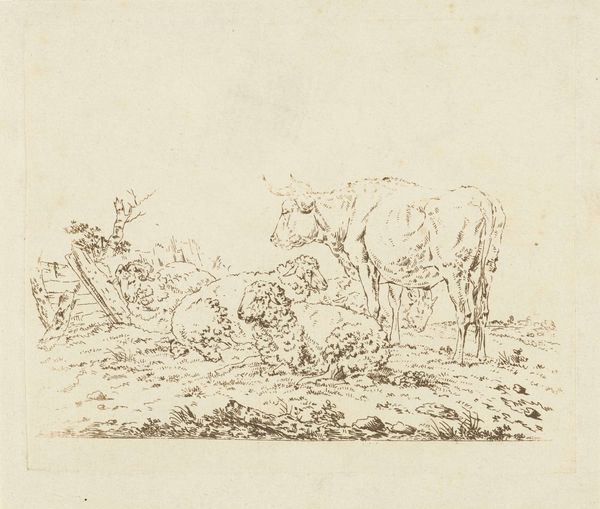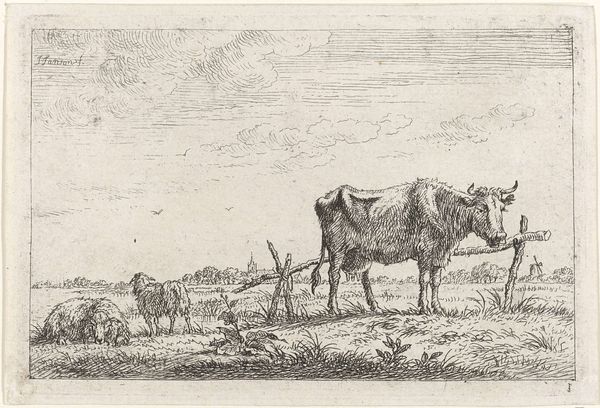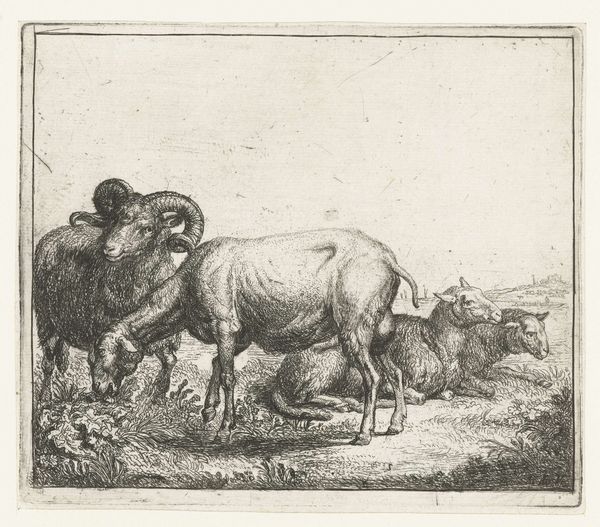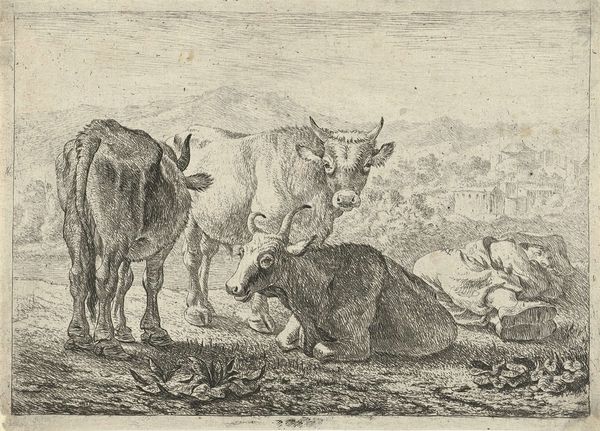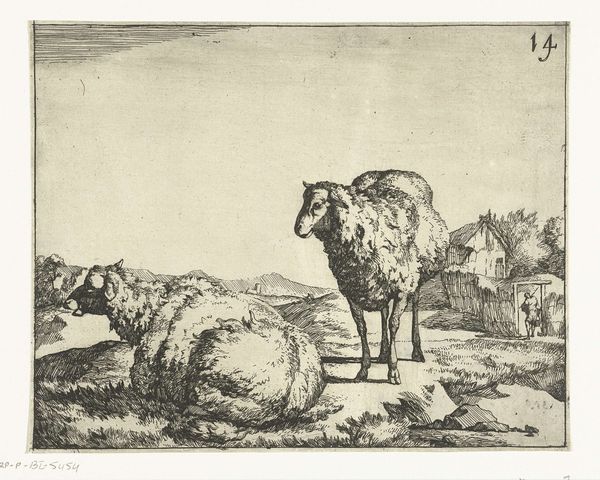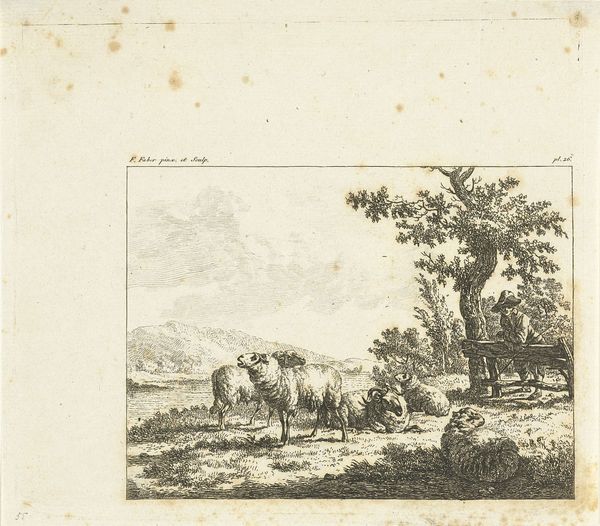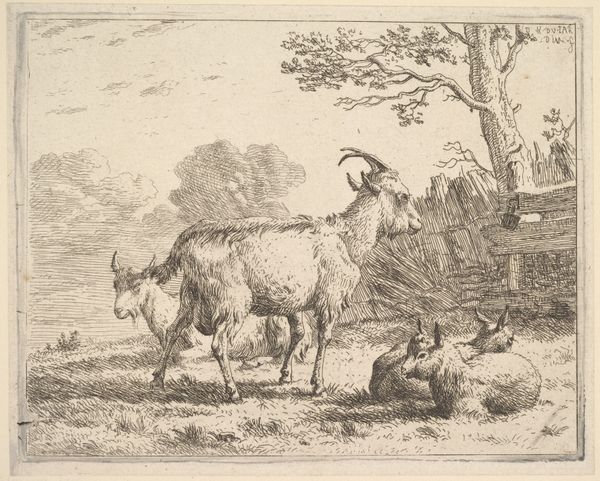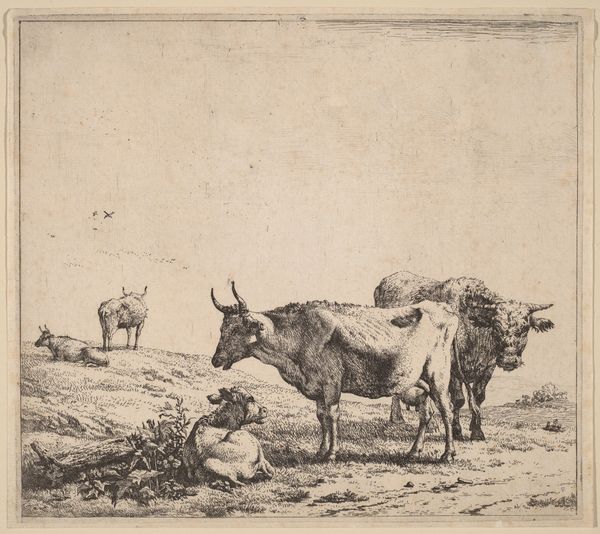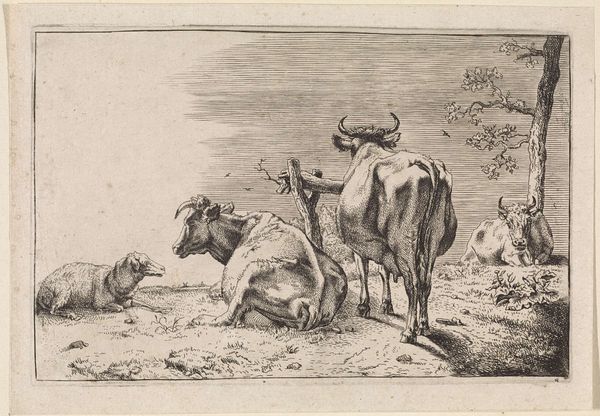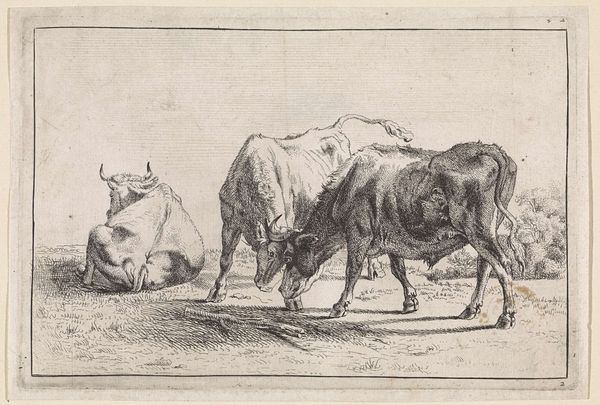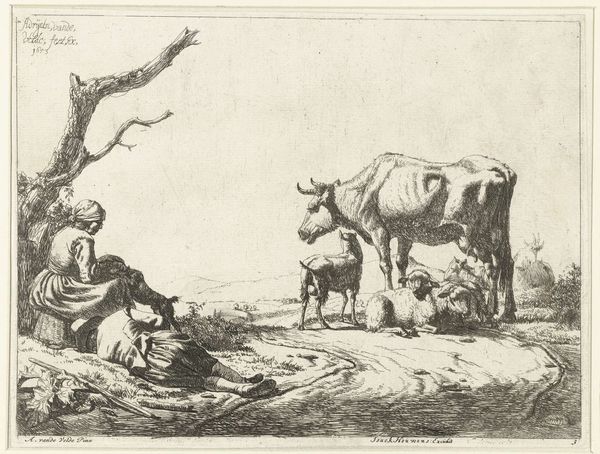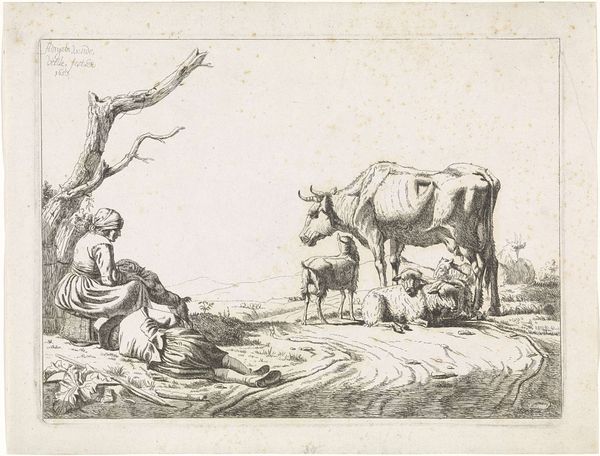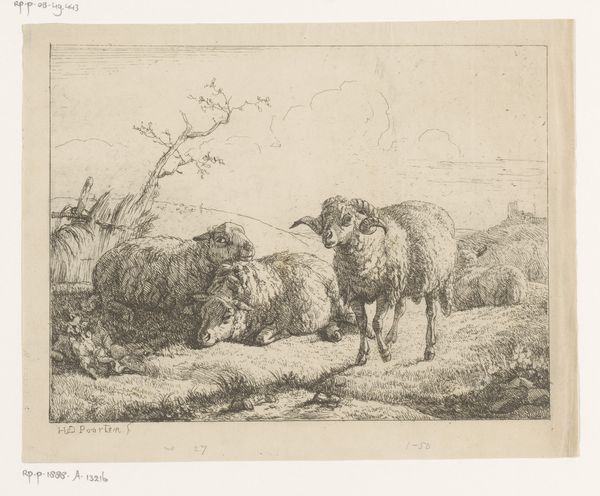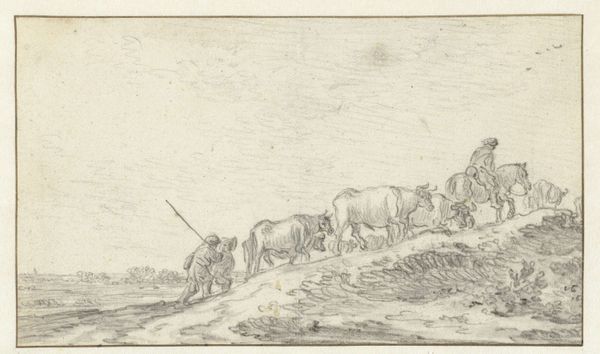
#
quirky sketch
#
pen sketch
#
sketch book
#
personal sketchbook
#
idea generation sketch
#
sketchwork
#
pen-ink sketch
#
sketchbook drawing
#
storyboard and sketchbook work
#
sketchbook art
Dimensions: height 122 mm, width 152 mm
Copyright: Rijks Museum: Open Domain
Curator: Here we have Fréderic Thédore Faber’s "Zittende Herder," or "Seated Shepherd," created around 1806. It's currently part of the Rijksmuseum's collection. What are your initial thoughts on this piece? Editor: There's a real sense of pastoral melancholy in this drawing. The shepherd seems almost dwarfed by his flock, lost in contemplation. Curator: Indeed. Faber created this etching at a time when the Dutch art world was looking back to its Golden Age, to the art of simple, rural life. You can see the influence of artists like Paulus Potter, but filtered through a more romantic lens. The public was experiencing intense urbanization so idyllic pictures became a coping mechanism of sorts. Editor: I see that yearning for an imagined past. But also, looking at the details, I’m struck by how much labor is present even in this 'idyllic' scene. The shepherd isn’t just existing, he is working and has his place in a clear socio-economic order. It forces us to reflect on those labor dynamics. Curator: Precisely. And it is a loaded one! Pastoral scenes are frequently politically conservative since they romanticize supposed times when everything was in order in terms of social dynamics, therefore a critique from someone looking back now could very well focus on that political dimension, which, of course, isn't always visible at first sight. Editor: It’s those complexities, those quiet tensions that make this more than just a pretty landscape, more than just the perfect illustration. Curator: I concur! Faber gives us a window into a complex, evolving society through deceptively simple scenes. What strikes you most, now after analyzing some historical and political context? Editor: The ability of art to disguise complex ideology through seemingly neutral topics; It is so thought-provoking, considering our own modern lens. Thank you. Curator: A perfect note to conclude. Thank you!
Comments
No comments
Be the first to comment and join the conversation on the ultimate creative platform.
